|
Do you know what kind of oil YOUR massage therapist uses?
I have had a lot of massage, and therefore have experienced many types of oils, creams and balms......including Baby Oil, and Wesson Cooking Oil ! Not great. Some (but not enough) people have asked what I use. I use an all organic sweet natural expeller pressed oil from raw almond kernels and it is exceptionally rich in fatty acids. It is quite expensive and so naturally pure that it can be ingested. Almond are NOT nuts (fun fact) so this is not a nut oil, for all who may be wondering, but almond Oil is Mother Natures gift to your skin. One of the biggest secrets behind the use of almond oil for skin treatments is the high level of fatty acids contained in the final oil mixture. Fatty acids serve as a natural emollient for the skin, and can help the skin lock in moisture by forming a protective barrier. Emollients are especially effective for conditions like acne, eczema, psoriasis, or rosacea. It is also good for reducing the signs of aging. Now, if you have oily skin, you might at first feel wary about putting any kind of oil on your skin, even if it’s just an ingredient in a face cream. However, the acne-forming oil that is produced by your skin is very different from the processed almond oil for skin treatments. With acne, some people are more prone to produce a sticky oil called sebum that can clog the pores with dead skin cells and other debris. However, the fatty acids in almond oil actually help dissolve the sebum that your skin produces, creating cleaner skin and pores, and helping to get rid of acne. One of the other reasons why almond oil is beneficial is because of its ability to plump and firm the skin. Almond oil works as a natural face exfoliator to help to remove dead skin cells and stimulate the growth of healthier skin. When used topically, the formulated almond oil for skin products or treatments is absorbed by the fatty cells of the skin. The moisture in the oil is then utilized by the tissues to repair damaged cells and give skin a more youthful appearance. Next time you go for your massage, ask (if they know) what type of oil is being applied to your body. Be Well Do you know WHAT makes you happy? Think about it.
Can you describe "happy" using other words? Try it. The sad fact is that most of us have no clue what makes us happy. If we did, doesn't it stand to reason we would do ALOT more of it? The reality is that we think we know what makes us happy, and so often times we expend energy pursuing the things that we think make us happy only to discover that once obtained, either they do not, or the feeling is short lived. Maybe its a new car, or a pair of shoes, or a trip. How often have you planned a really super special awesome vacation, and think about or dream about lying on a beach....and when the vacation comes, maybe the shuttle to the hotel is late, maybe the AC is broken the kids or the significant other is complaining....and the reality did not live up to the expectation. The reality is that Happiness seemingly very simple yet very tricky to define. One key is that the brain, and I talked about this before, is an "anticipation machine". Which is to say that man, seperate from all other beings can think, and dream and anticipate the future. When a squirrel stores away a nut for the coming winter, that may seem like he is anticipating the future, but he is operating more on autopilot, like a mini computer program. Once the amount of daylight diminished each day to a certain level, the program kicks in and he goes about storing nuts. So its looks like he is anticipating, but not really. But human dream, think, anticipate, savour.......and the reverse is that they fear, worry, dread. As I wrote last time about taking things day by day, because all of the fears and worries and stresses in life come from thinking about "what will or might happen in the future" so to, do alot of pleasures......in anticipating what a new dates might be like, or a great dinner, or an exotic location......we dream up all the perfect details, go over them again and again, and they are awesome...delectable. So what happens? Why does the reality often not live up to the anticipation? Well it could be that in part we become so fixated on the specifics of our anticipation, that when the actual thing happens and doesn't match exactly we get disappointed. Maybe you bought a new dress and you went over in your head 100 times what your spouse or new date is going to say, how we will compliment it, and each of those 100 times it put a smile on your face....then the 101 time, the times he shows up, and says "hi, we are running late, you look great" AWE! What an idiot! you think, doesn't he know what he was "supposed" to say? and you get disappointed, and then he is confused. But lets turn it around......maybe he was anticipaing something different......He made a reservation, tipped the maitre'd to give you the best table, he has been imagining that you walk in get impressed by his choice and how they treat you at this fancy place, but for him, that big anticipation is in jeopardy because you both are 15 minutes behind....now you drive kind of quiet....and he is thinking, Jeez, MY anticipation of this big night is ruined. So whats the solution? Well I wish I had the easy answer. I would say that of course there is much pleasure in anticipation.....but when it comes to reality, dont affix to much preconception, be open to enjoy the moments as they unfold....DON'T WORRY SO MUCH ABOUT THE SCRIPT! Countless volumes have bee written on the pursuit of happiness. One book that I return to again and again is actually called "Stumbling on Happiness" by Daniel Gilbert. I have read it maybe 50 times. It is not a guide to how to be happy but a fun scientific explanation of some of the things that have been learned about happiness, and many things that will surprise you and challenge your thinking. I continue to try and grow and learn what makes me happy, and I resolve to to do more of it. Yesterday it was this gooey mac and cheese in the self serve section. Totally gross, but totally yummy. I am trying to lose some weight So i was picking up some fresh vegetables and a lo-cal frozen dinner.....but this pan of mac and cheese was calling out to me.......so what did I do? Grabbed the smallest container, filled it up with only one or 2 spoons worth, and took it home....smiling. That's Happy Be Well !!! Why we are all addicted to Texting, Twitter, Facebook, etc. Escape the Dopamine Loop, create new reward habits
Do you ever feel like you are addicted to email or Twitter or texting? Do you find it impossible to ignore your email if you see that there are messages in your inbox? Do you think that if you could ignore your incoming email or messages you might actually be able to get something done at work? You are right! The culprit is dopamine -- Dopamine was "discovered" in 1958 by Arvid Carlsson and Nils-Ake Hillarp at the National Heart Institute of Sweden. Dopamine is created in various parts of the brain and is critical in all sorts of brain functions, including thinking, moving, sleeping, mood, attention, motivation, seeking and reward. Pleasure vs. seeking -- Dopamine causes you to want, desire, seek out, and search. It increases your general level of arousal and your goal-directed behavior. From an evolutionary stand-point this is critical. The dopamine seeking system keeps you motivated to move through your world, learn, and survive. It's not just about physical needs such as food, or sex, but also about abstract concepts. Dopamine makes you curious about ideas and fuels your searching for information. Wanting vs. liking -- The wanting system propels you to action and the liking system makes you feel satisfied and therefore pause your seeking. If your seeking system isn't turned off at least for a little while, then you start to run in an endless loop. The dopamine system is stronger than the opioid system. You tend to seek more than you are satisfied. Evolution again -- seeking is more likely to keep you alive than sitting around in a satisfied stupor. Dopamine loops -- With the internet, twitter, and texting you now have almost instant gratification of your desire to seek. Want to talk to someone right away? Send a text and they respond in a few seconds. Want to look up some information? Just type your request into google. Want to see what your colleagues are up to? Go to Linked In. It's easy to get in a dopamine induced loop. Dopamine starts you seeking, then you get rewarded for the seeking which makes you seek more. It becomes harder and harder to stop looking at email, stop texting, or stop checking your cell phone to see if you have a message or a new text. More, more, more -- Interestingly brain scan research shows that the brain has more activity when people are ANTICIPATING a reward than getting one. Research on rats shows that if you destroy dopamine neurons, rats can walk, chew, and swallow, but will starve to death even when food is right next to them. They have lost the anticipation and desire to go get the food. Although wanting and liking are related, research also shows that the dopamine system doesn't have satiety built in. It is possible for the dopamine system to keep saying "more more more", causing you to keep seeking even when you have found the information. How many times have you searched for something on google, found the answer, and yet realize a half hour later that you are still online looking for more information? The cost to your body and mind -- This constant stimulation of the dopamine system can be exhausting. And the constant switching of attention makes it hard to get anything accomplished. Can you do anything to get out of a dopamine loop? Or prevent getting in one in the first place? Turn off the cues -- One of the most important things you can do to prevent or stop a dopamine loop, and be more productive is to turn off the cues. Adjust the settings on your cell phone and on your laptop, desktop or tablet so that you don't receive the automatic notifications. Automatic notifications are touted as wonderful features of hardware, software, and apps. But they are actually causing you to be like a rat in a cage. If you want to get work done you need to turn off as many auditory and visual cues as possible. It's the best way to prevent and break the dopamine loops. Create new Habits -- The dopamine system is especially sensitive to "cues" that a reward is coming. If there is a small, specific cue that signifies that something is going to happen, that sets off our dopamine system. So when there is a sound when a text message or email arrives, or a visual cue, that enhances the addictive effect. One way to extricate yourself from this loop is to create new habits. Research shows that up to 95 % of your day is based on Habit! Think about it; you wake, make the bed, brush your teeth, eat, drudge to work, come home, etc. etc. Most of daily life occurs on auto pilot! Built in are reward cues...you reach for a cookie, or ice cream, to fee a sense of reward. BUT it is possible that other things, new habits will satisfy that reward center. According to Dr. Kelly McGonigal, the brain can learn to attach the promise of reward to almost anything. If your brain believes that something is going to make you happy, your brain can initiate the craving response. One study from the University of Maryland connects compulsive technology usage to the same parts of your brain as cravings, another from the journal NeuroImage suggests drug cravings are no different from food, shopping, or other cravings. Many researchers claim that anything that is highly rewarding for somebody can elicit strong cravings, because the reward center has "learned" to anticipate the pleasure it brings about. So, anticipated reward is, in a sense, the "common currency" of the brain by which various activities are evaluated. What do you think? How do you deal with dopamine loops? Are you willing to turn off your cues? 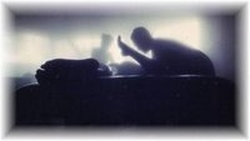 Are you interested in experiencing Lomi Lomi? the "Queen" of Massages? If you're looking for a true authentic Hawaiian lomi lomi massage in Boston or for a Boston traditional hawaiian massage therapist, or Lomi lomi massage Boston, I specialize in hawaiian lomi lomi massage. What is Lomi Lomi ? Massage is one of the oldest and most powerful forms of healing. Lomi Lomi is one of the most profound forms of massage. So, what makes it so special, what is it, how does it differ from other massage, how does it "work"? I"m often asked what Lomi Lomi means. The word Lomi Lomi simply means massage. What it is, is a unique healing massage derived from the ancient Polynesians and more specifically the master healers of Hawaii. To understand the depth of Lomi Lomi massage, it helps to have an understanding of the Hawaiian philosophy called Huna, and how the philosophies of Huna relate to bodywork and healing. A fundamental assumption of Huna is that everything seeks harmony and everything seeks love. So how does this relate to massage? Perhaps this can best be understood by one of the alternate names for Lomi Lomi, and that is "Loving Hands" massage. The reason for this is that it works gently yet deeply into the muscles with continuous, flowing strokes, totally nurturing the body and, enabling the recipient to relax, give in and simply be. So whilst technique is an important part of the massage and associated healing, much of the work is done by love, with the focus of the practitioner on the client being deep and complete, using loving hands and a loving heart. This flowing with total energy, using the long continuous, flowing strokes, combined with the very loving touch, relaxes the entire being, assisting in a letting go of old beliefs, patterns and behaviours that cause limitations and which are stored in the cells of our body. People generally think of memory, beliefs, our "programming", as being stored in our head, in our brain. This is not the case, this memory and other programming is in fact stored in all the cells of our body. The Hawaiians look at things in terms of energy flow, following the idea that an idea or belief can block energy flow as much as muscle tension can. Lomi Lomi helps release the blockages, whilst at the same time giving the energy new direction. Thus Lomi Lomi is not just a physical experience; it also facilitates healing on the mental, emotional and spiritual levels as well. The Hawaiians view all aspects of the body as one and believe that the physical, mental, emotional and spiritual are all part of the "whole" self - when healing is effected on one level, all levels are affected. When harmony is lacking the effect is pain physically, mentally, emotionally or spiritually. Illness is a state of tension, which leads to resistance which blocks energy movement. Lomi Lomi helps release this and therefore facilitates the road to healing. On the physical level, through Lomi Lomi stress and tension are relieved, blood and lymph flow assisted and the elimination of wastes and toxins stimulated. So, what happens during a Lomi Lomi massage? How is it performed? A Lomi Lomi usually commences with a stillness between the practitioner and client, often with the practitioners hands gently resting on the clients back. In this stillness the practitioner will quietly say a blessing or prayer asking for whatever healing is needed to take place during the massage. Alternatively or as well, the client may be asked to set their intention for any healing they would like to receive. The practitioner then works very intuitively with the client. In this respect there is no set format or sequence for the massage and no two massages will ever be identical. The massage is given in fluid, rhythmic motion using the forearms as well as the hands. Some people have described this as feeling like gentle waves moving over the body. Another feature is that different parts of the body may be massaged at the same time, for example one arm or hand may be working on a shoulder and the other hand may be working on the opposite hip. This assists the recipient in totally relaxing as it is impossible or at least extremely difficult for the brain to focus on the two different areas at once. By not working on areas in isolation a deep sense of balance and harmony is achieved. As I said earlier, whilst technique is important, the priority is loving the body, using intuition so the massage is "right" for the client. The client on the table is not viewed as someone to be fixed, but a being to be returned to harmony and balance. It is important to remember that the practitioner does not heal but is the facilitator for the healing. Under body and full body strokes also help to free the energy, make the body soft, promoting free and abundant flow of life energy in the recipient. According to Huna philosophy, energy also gets blocked in the joints. Gentle stretches of the body and gentle rotations of the joints are therefore also incorporated to assist the release of tensions and assist the flow of energy, once again not forcing, but feeling the level of the clients resistance or comfort. The practitioner may also hum at various points during the Lomi Lomi as the vibrating and amplified energy that results also aids the release of blockages. Dancework or hula movements, combined with the breathwork of the practitioner are also important and integral aspects of Lomi Lomi. The reason for the hula type dance around the table whilst massaging is not just because it looks good! The movements are all important to assisting the energy flow both within the practitioner and recipient and helps keep the energy at a high level. This combined with breathing techniques by the masseuse are also important in assisting the energy flow. The sharing of the breath, the essence of the Creator or universal energy, whatever name you like to give it, is an old Hawaiian custom and greatly enhances the energy flow once again. Another major difference from other massage is that the person lays directly on the vinyl of the table and not on a towel and rather than being covered completely by towels, is covered by a small sheet or towel leaving most of the body exposed during the massage, whilst maintaining the recipients modesty. This makes it a lot easier to perform the underbody and full body strokes without interrupting the flow of the massage. Specifically, the chest is typically uncovered brieflly for both women and men, for some of the front of the body strokes. You may be thinking it must be very cold in the middle of winter. To overcome this and ensure the comfort of the client, heaters can be used to maintain the room temperature at a warm level. Because the practitioner works intuitively, a massage may be slow and very relaxing or at times it may be a little faster and therefore more invigorating and enlivening to the body. Sometimes the recipient may experience an emotional release as the massage can release and shift negative emotions, negative beliefs and other "stuff" that has been stored in the cells of the body, with the healing effects of the massage continuing long after the massage is over. Aloha The Aloha Spirit refers to the attitude of friendly acceptance for which the people of Hawaii are so famous. Aloha stands for so much more than hello or goodbye or love. Its deeper meaning is " the joyful sharing of life energy in the present". This really is one of the secrets of Lomi Lomi and to love and nurture the body as if it was your own. Aunty Margaret who is one of the oldest and widely recognised teacher of Lomi Lomi has a definition of Lomi Lomi which is "The Loving Touch - a connection of heart, hands and soul with the Source of All Life!" Students of Lomi Lomi learn to flow the love from the heart, through the hands, to connect with the soul of the one receiving the massage. Healing is increased by love, love received and love given. In the Oxford Dictionary the definition of love is fondness, a deep or passionate affection to someone or something - to the Hawaiians it is so much more, it also includes tolerance, forgiveness, acceptance, non judgment, appreciation, compassion, respect and so many other elements - this is the very foundation of a Lomi Lomi massage. Aloha ! Update: read part two here |
A Really Good Massage BlogAbout MeI write about things that I myself need to be mindful of. ways in which I would like to improve. It is not from the perspective of preaching - but rather writing helps me work out what I myself need to do - we are all in this together.
Archives
February 2024
Categories
All
|
AWARD WINNING
|
|
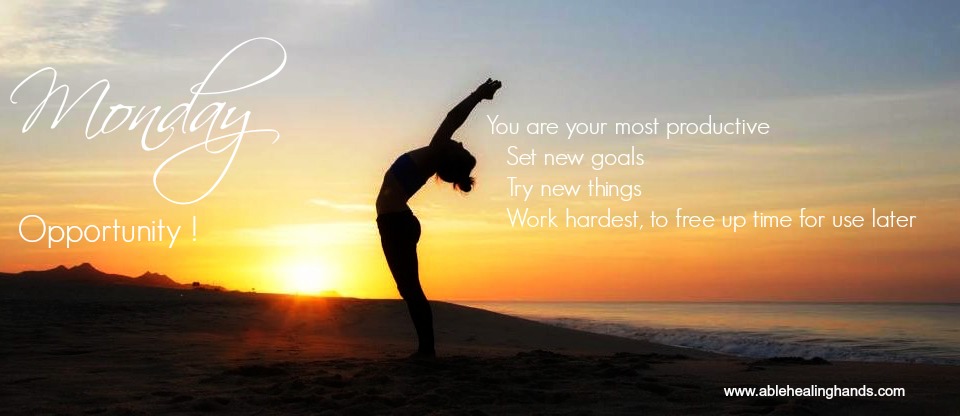
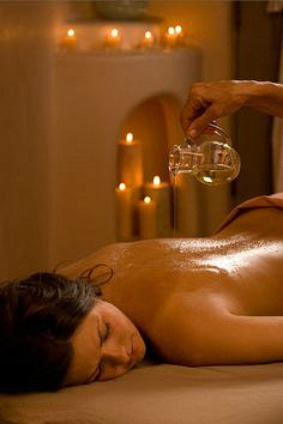

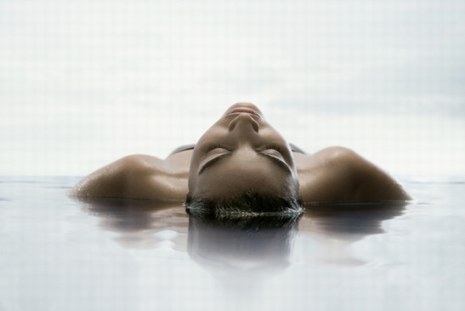
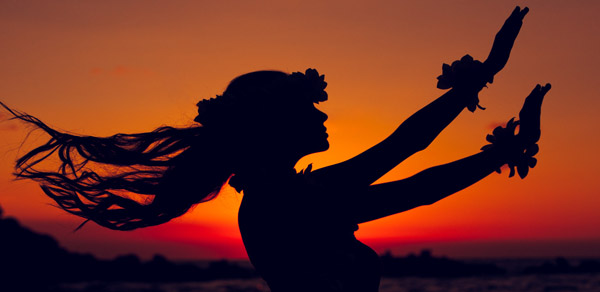
 RSS Feed
RSS Feed
